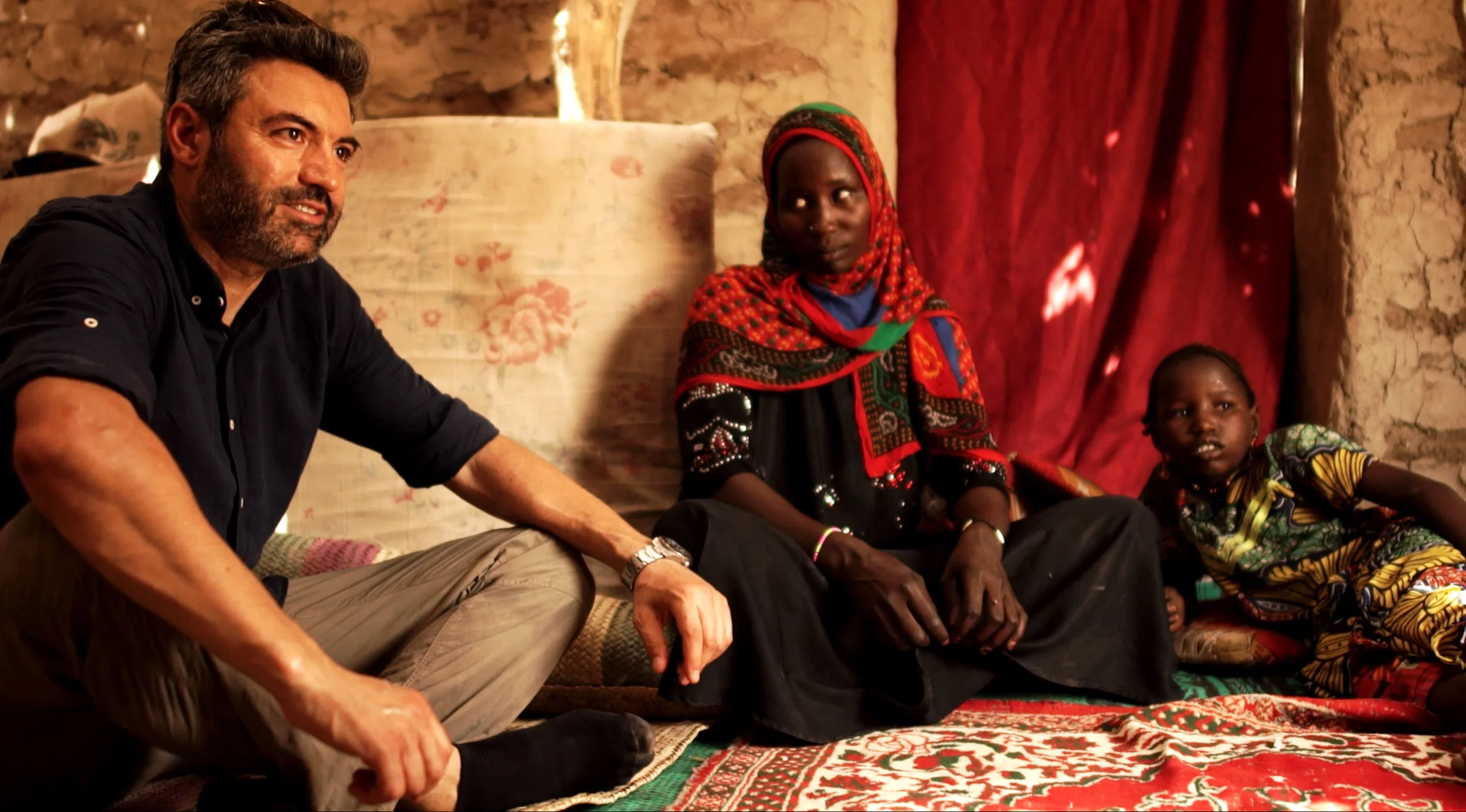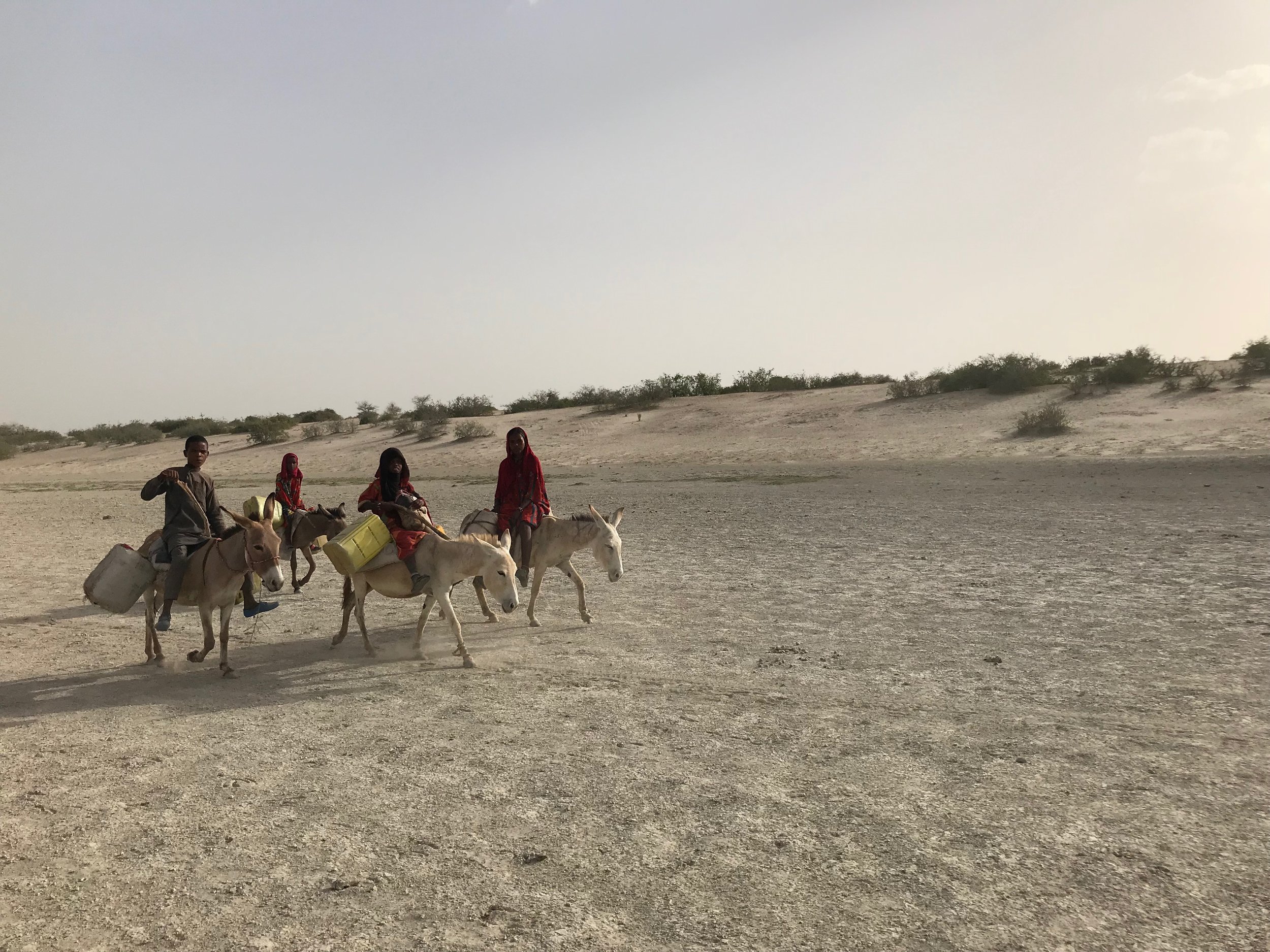The brutal butterfly effect of global warming
A journey to Lake Chad
Due to ongoing militant activity in the region it is one of the least visited places in Africa, and Americans are banned from going there altogether. When I travelled to Lake Chad however I discovered that, whilst people do live in fear of guns, global warming is perhaps the biggest enemy they face and is behind many of the country’s problems, including the guns.
People walk 20miles to the market each way to sell their goods.
I’ve travelled to some of the harshest places on the planet, but rarely have I seen such a humanitarian disaster as when I visited Lake Chad earlier this year.
The country itself left me with some incredibly positive memories, not least from the time I spent with the remote Wodaabe tribes, famed for their facial tattoos and polygamous culture. It was Lake Chad that left me most affected however.
We hear of changing weather patterns, sea levels rising and polar icecaps melting almost daily, but the impact global warming has had on Lake Chad is on another level. A water source for up to 30 million people, the lake has shrunk at an incredibly alarming rate, 90% since the 1960’s, a global warming demise accelerated by unplanned irrigation systems.
As I walked the many miles of dried up lake bed the obvious signs of the water shortage were clear - fishermen struggling to get enough food to survive, children, whose families once lived on the lake shores, having to walk vast distances every day for water, farms that used to thrive fighting for survival on dry arid lands. The outlook is so dire that the UN says 10.7 million people in the Lake Chad basin are in desperate need of humanitarian relief to survive.
With a Kanembu family
As I continued my travels in the region I came across huge refugee camps, containing hundreds of thousands of people displaced from their homes. Whilst some families were driven there directly by the famine, unable to find enough food and water to survive, most were there due to a more unexpected consequence of global warming – the rise in militant activity in the area by Boko Haram, an insurgent group working out of Nigeria, looking to form a new state and often carrying out violent and terrifying acts.
On top of the climate change, a population explosion and under development in the area has added to increasing pressure on the dwindling resources in the area.
In a region where people are already desperate, there is little option but to flee when violence, death and destruction arrives on their doorsteps and the refugee camps continue to swell. The issue is complicated further by the fact Lake Chad is shared by four nations, bringing with it added burocracy and shared, often neglected responsibilities.
All of this has resulted in the Lake Chad region becoming the perfect recruiting ground for the Boko Haram militants, who can offer a little cash and food to those already fighting a daily battle for survival.
In Lake Chad area survival is an exercise anchored to life.
The region is on the brink of collapse and needs the world’s attention. If there was ever an example of how, alongside the more obvious devastating consequences, global warming can have terrible butterfly effects, then this is it – everyone needs to sit up and listen. The ripple effects of this global warming disaster at Lake Chad are even being felt on the streets of UK cities as refugees from Lake Chad cross the Mediterranean and into Europe. Perhaps we should stop focusing so much on how to stop immigration and more on one of the major under discussed causes of it, global warming.
We may be able to predict how many centimeters our seas will rise if the polar icecaps melt, but there is no way of knowing what this will mean for the fragile stability of many of the world’s poorest communities. We need to stop thinking casually ‘these things might happen in the future’ and more ‘these things are happening now and are already killing millions of people. We need to act immediately to help the people of Lake Chad, and the millions of others around the world in similar situations, and stop things progressing further down this black tunnel.
I’m hoping a documentary film I’m producing will help highlight Chad’s problems and a short cut from this can be seen below.


